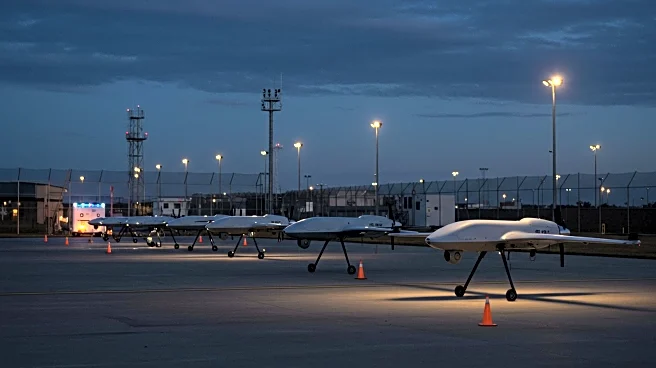What's Happening?
Defense Secretary Pete Hegseth's extensive security requirements are placing a significant burden on the Army's Criminal Investigation Division (CID), which is responsible for his protection. The agency has had to reallocate agents from criminal investigations to safeguard Hegseth's family residences in Minnesota, Tennessee, and D.C. The initiative, described as unprecedented, involves hundreds of agents and multimillion-dollar resources. The Trump administration has not met the Army's requests for additional funding and personnel, exacerbating existing staffing and budgetary shortfalls. The security demands are partly due to Hegseth's large blended family and increased politically motivated violence. The situation has led to frustration within CID, as agents are diverted from their primary law enforcement duties.
Why It's Important?
The strain on CID resources highlights the challenges faced by protective agencies in balancing security needs with investigative responsibilities. The situation underscores the impact of political and personal security demands on government agencies, potentially affecting their ability to fulfill core missions. The case raises questions about resource allocation and the prioritization of security over other critical functions, such as criminal investigations. It also reflects broader concerns about the politicization of security measures and the implications for agency operations and effectiveness. The issue may prompt discussions on the adequacy of funding and support for protective services within the Defense Department.
What's Next?
The Army CID is seeking additional personnel and funding to address the demands of executive protection, but these requests are unlikely to be fully met. Lawmakers will consider defense spending legislation in September, which may impact the agency's ability to manage its responsibilities. The ongoing strain on resources could lead to further scrutiny of Hegseth's security arrangements and the broader implications for the agency's operations. The situation may also prompt discussions on the need for reforms in how protective services are managed and funded within the government.









